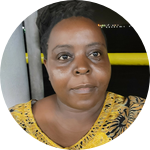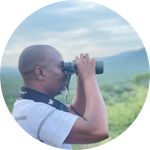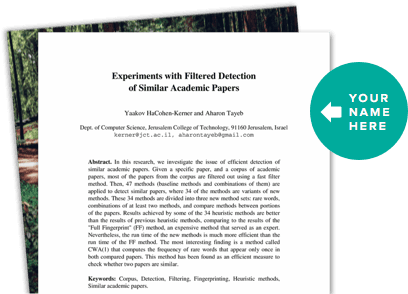About This Project
Coral conservation is hindered by the inability to accurately identify species; we can’t conserve what we can’t identify! To address this challenge, we aim to identify better DNA markers for species identification using an innovative modern DNA-sequencing strategy. We will then design a cheaper and more rapid DNA-based method for routine detection. This will be piloted on ecologically important coral species in Kenya to augment reef restoration efforts and enable assessment of coral diversity.
Ask the Scientists
Join The DiscussionWhat is the context of this research?
Accurate identification of coral species is difficult because most species' physical features depend on their immediate environments [1,2], and some species are genetically similar at the genome regions traditionally used for species delineation due to the slow evolution of those regions [3]. Current genetic identification strategies entail sequencing multiple markers, which is both expensive and time-consuming. There is a need for better single markers. Modern sequencing technologies which target regions that differ in the genetic makeup of target individuals [4,5] have the potential to identify more informative markers. Once informative markers are identified, rapid and inexpensive protocols can be designed for routine testing.
What is the significance of this project?
A robust taxonomic framework is crucial for conservation management as we cannot protect what we cannot identify [6]. Estimation of genetic diversity, an important proxy for adaptability and survival, also requires definitive identification of species. Corals are in dire need of conservation given their risk of extinction due to climate change and other human impacts [7], but their taxonomy is problematic. East Africa is a hotspot for coral diversity, with underscores the region's economy. However, some species here have yet to be delineated, and generally corals genetics in the region is understudied due to lack of expertise and costs associated with DNA sequencing. Data generated from this study will contribute significantly to the conservation efforts by facilitating rapid inexpensive identification of coral species, and accurate determinations of genetic diversity.
What are the goals of the project?
This is an exploratory study aimed at genome-wide screening for taxonomically informative markers to establish an efficient, rapid and inexpensive identification framework. At least 180 tissue samples will be collected from nine (9) ecologically important coral species spanning four (genera) from the Western Indian Ocean in Kenya. DNA extraction will be done by commercial kit and libraries prepared for sequencing by the Illumina platform. Sequences will be used for phylogenetic analyses to identify chromosome regions that identify each species conclusively. DNA-based protocols will be designed, based on the identified markers, to aid subsequent sequencing and rapid inexpensive detection by PCR for routine use. Genetic diversity of the Kenyan corals will be assessed from the resultant data and established protocols will be tested on more species for reproducibility.
Budget
The preparatory work, including partial sampling as well optimization of DNA extraction and library preparation protocols, has been conducted using funds from other projects in my lab. The requested funds will enable us complete sampling, to have enough representation for each of the coral species targeted, to purchase the needed consumables for laboratory processing, and to pay for the shipping and sequencing of the libraries once prepared. Overall, this will enable us identify novel markers which will allow for accurate estimations of genetic diversity among coral populations as well as informing conservation strategies first in Kenya and potentially the world over.
Endorsed by
 Project Timeline
Project Timeline
Sampling of target species will be done in the 1st month of the study. Lab processing will be done in months 2 - 3. Processed samples will be shipped for sequencing in month 4. Analyses to identify informative DNA markers for species identification will be in months 5 - 7. Design of a rapid DNA-based method for routine use will be done in months 8 - 10, while months 11 - 12 will be for preparing reports and disseminating findings to the scientific and conservation communities.
Jan 11, 2025
Project Launched
Jun 30, 2025
Sample collection
Aug 31, 2025
DNA extraction & library preparations
Sep 30, 2025
Sequencing
Dec 31, 2025
Bioinformatic & statistical analysis
Meet the Team
Affiliates
Sammy Wambua
I have employed molecular biology in biomedical research for over 20 years. I have recently switched to utilizing genomics to explore and protect tropical species of conservation concern. Ongoing research includes population genomics for East African corals, sea cucumber and cichlids, immunogenetics of sea turtles, and microbiome analysis of corals, seagrass, and mangroves.
Lab Notes
Nothing posted yet.
Project Backers
- 0Backers
- 0%Funded
- $0Total Donations
- $0Average Donation




